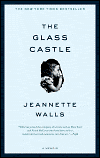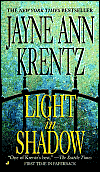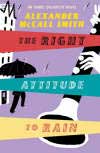
Occasionally
Kailana and I like to do joint reviews on books that we are both intending to read at roughly the same time! Her thoughts are in black, and mine are in purple. I hope you enjoy this one!
THE GLASS CASTLE is a remarkable memoir of resilience and redemption, and a revelatory look into a family at once deeply dysfunctional and uniquely vibrant. When sober, Jeanette's brilliant and charismatic father captured his children's imagination, teaching them physics, geology, and how to embrace life fearlessly. But when he drank, he was dishonest and destructive. Her mother was a free spirit who abhorred the idea of domesticity and didn't want the responsibility of raising a family.
The Walls children learned to take care of themselves. They fed, clothed, and protected one another, and eventually found their way to New York. Their parents followed them, choosing to be homeless even as their children prospered.
THE GLASS CASTLE is truly astonishing - a memoir permeated by the intense love of a peculiar, but loyal, family. Jeanette Walls has a story to tell, and tells it brilliantly, without an ounce of self-pity.
I have to admit, this book has been recommended to me several times, but I avoided it. Following all the uproar following
A Million Little Pieces, I was very wary about memoirs. Then, I started to really be told that I would like it, and I should read it, so I broke down and bought it. It was a very worthwhile read! During November, when I first had a reading lull and then was too busy to read, I read this book in a few short days.
The reason why I read this book is that it was selected as Book of the Month in one of the groups I was in. I didn't end up reading it with the group, but it's selection had piqued my interest enough to make me go out of my way to find it. I have definitely read more autobiographies and other non fiction books this year than I have in previously years, and this one is definitely one of the better ones!
The memoir captures your attention from the beginning. The novel opens with this paragraph:
I was sitting in a taxi, wondering if I had overdressed for the evening, when I looked out the window and saw Mom rooting through a Dumpster. It was after dark. A blustery March wind whipped the steam coming out of the manholes, and people hurried along the walks with their collars turned up. I was stuck in traffic two blocks from the party where I was heading.
So begins the story of Jeanette Walls and her family. An amazing story it is too. It makes your appreciate your warm beds, that's for sure. In one of the Jeanette's earliest memories, she is cooking for herself and catches her clothes on fire. She's three. That is just the beginning of the adventures that this family goes through. They cannot pay Jeanette's health bills, so they steal her from the hospital one night and make a run for it.
In many way the early years of Jeannette's childhood were idealised a lot. Dad was always convinced that he was on the brink of discovering the next big thing, and yet somehow they managed to skedaddle from one town to the next, keeping one step ahead of the law and debtors and goodness knows who else. And yet for the children, they had an almost idyllic childhood, in terms of being allowed to basically do what they wanted, in environments that ranged from an old railway station being used as a house, to a house in Phoenix, to a ramshackle, almost falling down dump in coal country.The images of Jeannette's early memories are the themes to her life. She has a family where her mother gets depressed if she has to go to a regular job. She has a father who can only hold a job as long as he can stay sober. The children are allowed to do pretty much whatever they want. If they seriously injury themselves, many times they are just treated at home and sent back out to play. They are also almost always running from something. They have lived in countless houses during the course of the memoir.
The most telling quote for me from the book is relating to the mother - many times Jeannette and her siblings are basically starving with the money for food being spent by dad down at the pub, and quite often they have to prepare what little meals they have on their own, because their mother's philosophy is "Why should I cook a meal that will be gone in an hour when I can do a painting that will last forever?" As the children get older it falls to them to in effect be the parents. When their mother is employed for brief periods of time, it is the older kids who make sure that she is up in time to go to work, it is the kids who assist with the grading of papers and what have you. As they get older it becomes clearer to them that actually their life isn't ideal, and yet, the older three in particular end up being very responsible, and quite successful in their chosen fields. It was interesting to think about the dynamics of how some people can escape from the poverty trap, and what drives those people to become the people they are.
The interesting thing about Jeanette's family is that even though her parents have breaks where they are actually living with food and a roof over their house, they often get bored and go somewhere else. And then in New York, the children are making a name for themselves and their parents choose to be homeless. Her mother likes adventure, she is always saying. A safe home and food on the table is too save for her, she would rather live more dangerously, which happens many times during Jeannette's life.
 Jeannette's mother interested me. She was a trained teacher, who married a man who basically rocked her world, despite the fact that she was often reliant on her family to keep what little food her children had. Whilst she was a passionate artist, she couldn't make a living from it, and she certainly struggled with holding down a normal job. She then made decisions, that lead to her ultimately being homeless, and yet, whilst she was cash poor, she was actually quite a wealthy woman. How is it that some people are completely materially focussed and yet others have wealth, and yet cannot seem to provide for themselves - there are lots of little things to contemplate as you read through this book!
Jeannette's mother interested me. She was a trained teacher, who married a man who basically rocked her world, despite the fact that she was often reliant on her family to keep what little food her children had. Whilst she was a passionate artist, she couldn't make a living from it, and she certainly struggled with holding down a normal job. She then made decisions, that lead to her ultimately being homeless, and yet, whilst she was cash poor, she was actually quite a wealthy woman. How is it that some people are completely materially focussed and yet others have wealth, and yet cannot seem to provide for themselves - there are lots of little things to contemplate as you read through this book!I remembered hearing something about this woman when I started reading the book. I must have seen it somewhere or heard her story on the television because as I was reading it I found the story familiar.
(I hadn't heard of her at all until I started hearing about this book). I think it is a very brave thing to tell people about your past. It is often something that you would just like to forget, and there are many times where she does just that; tries and pretends that she lived a different life.
It is an interesting thing about life. People wonder why the news is full of bad news and memoirs cover depressing topics, but it is really that they sell better that way. People would rather hear the bad things so that whatever is happening in their own lives does not look that bad in comparision. Some people may have bad childhoods, but the Walls children spent nights sleeping in the desert.
For them though, sleeping in the desert was not a hardship - it was an adventure. Whilst they were young I think the family had a "life is what you make it" kind of theme. It was only as they grew older that they began to realise how different their family was, about how they needed to work hard to give them the means to escape from their world to something much better. I also think that the title is a very fitting one. Although, Jeannette's father always claimed he would one day build a glass castle, in truth the words go well to describe the life that Jeannette and her siblings lived through. Glass is fragile, and for many instances in their childhood, things were very likely to be broken.
This really is a book that should be read!
Kailana's rating: 4.5/5
Marg's rating: 4/5
Other Blogger's Thoughts:
B&B Ex Libris




























